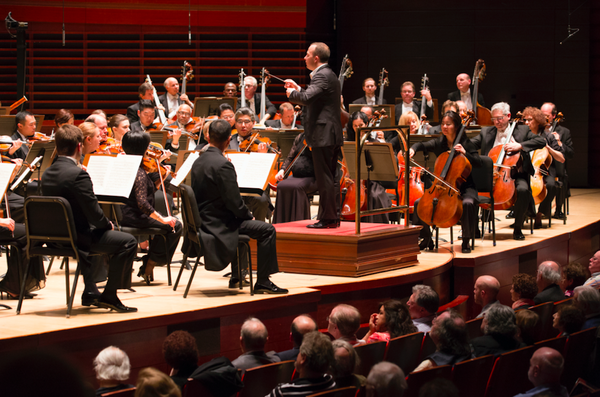Relations between the U.S. and China seem tense right now, but it was only a few decades ago that it was illegal for American citizens to travel to the communist nation.
As diplomats worked to normalize relations between the two, in 1973 the Philadelphia Orchestra became the first American musical act to tour in the People's Republic of China, where most western music was banned at the time.
- MORE CULTURE
- Holocaust class a family tradition for three generations of Stockton University students
- Former Guggenheim family property in Bucks County on the market for $2.5 million
- Wu Tang Clan's Raekwon, Foot Locker to support musicians with Philly-themed sneaker
A new book by Jennifer Lin explores the details of the trip from the perspective of the musicians, journalists and diplomats involved. Her account is based on interviews, personal diaries and contemporary news articles.
"Beethoven in Beijing" was released by Temple University Press on Friday. Hard-cover copies of the book are available for $35.
It features 92 pictures from the trip and a foreword by Yannick Nézet-Séguin, the orchestra's current director.
This is not Lin's first work about the tour. The long-time Inquirer reporter co-directed a documentary with the same name for PBS, which premiered in 2021.
Jindoing Cai, who grew up in China and is now the director of Bard College's U.S.-China Music Institute, remembers how influential the trip was.
“I was a teenager who listened to Beethoven in secret on an old wind-up phonograph," she said. "Their visit helped transform the course of musical history in China and around the world."
The tour happened just one year after former President Richard Nixon's first trip to China, which ended a 25 year period with no communication or diplomatic ties between the two nations.
It was just a few months later that Nixon personally called the orchestra's conductor Eugene Ormandy and asked him to make the journey, as well.
The orchestra managed to dazzle Chinese citizens before they even got on stage. A few of the musicians threw around a frisbee in front of their hotel shortly after arriving, an activity the Chinese had never seen before and were amazed by.
At that time, the only precedent for diplomatic relations between the U.S. and PRC was related to sports. Two American basketball teams, one male and one female, visited China earlier that year.
The trip required some adjustments for Ormandy, who was not accustomed to performing under authoritarian rule.
Jiang Qing, the wife of Mao Zedong – China's supreme leader, demanded that the orchestra play Beethoven's Symphony No. 6 instead of No. 5. She was the leader of the brutal cultural revolution underway at the time and in complete control of all matters regarding the arts in the country.
Ormandy was not a fan of that song and initially refused, but he played it anyway after diplomat Nicholas Platt explained its significance to the Chinese Communist Party.
The song was inspired by Beethoven's retreats to the Austrian countryside. The CCP had just propagated a revolution in China on the backs of the nation's rural peasant masses, Platt explained, and Qing wanted to elevate agrarian themes in the nation's cultural sphere.
When members of the Chinese media came to Philly in 2019 to interview the musicians about their 1973 trip, they wanted to know how American perceptions of their country had changed.
Many of the musicians spoke about China's rapid, large-scale urbanization, WHYY reported. While 80% of the population was concentrated in the countryside in 1973, today 60% of the nation lives in cities.
Some of the musicians remembered even the capital Beijing as relatively rural and diffuse when they first visited.

